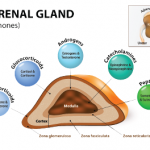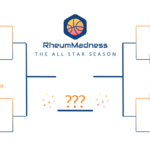Dr. Burns notes that we have made some progress, such as tocilizumab to treat giant cell arteritis: “That enables you to taper the prednisone more quickly or maybe get away with a minimal amount.” Another example is the recently approved complement inhibitor avacopan for granulomatosis with polyangiitis, which may offer practitioners a new means to reduce patients’ steroid use over the long term.
Dr. Bucala also points out that despite recent rheumatology trends, long-term, low-dose steroid therapy may still be helpful for some patients. For example, a recent study in The Lancet found that RA patients maintained on low-dose prednisone achieved better disease control than those who had been completely tapered off prednisone.5 “This notion of careful, judicious use of low-dose steroids is important and has value,” he adds. More than 70 years after Hench and Kendall’s report, rheumatologists are still debating the optimal use of this important class of compounds.
Readers seeking to learn more may want to read Dr. Burns’ article “The History of Cortisone Discovery and Development.”3 For a more comprehensive history on both the greater historical context and the personalities involved, see the comprehensive book, The Quest for Cortisone by Thom Rooke, MD.5
 Ruth Jessen Hickman, MD, is a graduate of the Indiana University School of Medicine. She is a freelance medical and science writer living in Bloomington, Ind.
Ruth Jessen Hickman, MD, is a graduate of the Indiana University School of Medicine. She is a freelance medical and science writer living in Bloomington, Ind.
References
- Hench PS, Kendall EC, Slocumb CH, et al. The effect of a hormone of the adrenal cortex (17-hydroxy-11-dehydrocorticosterone; compound E and of pituitary adrenocorticotropic hormone on rheumatoid arthritis. Proc Staff Meet Mayo Clin. 1949 Apr 13;24(8):181–197.
- Hunder GG, Matteson EL. Rheumatology practice at Mayo Clinic: The first 40 years—1920 to 1960. Mayo Clin Proc. 2010 Apr;85(4):e17e30.
- Burns CM. The history of cortisone discovery and development. Rheum Dis Clin North Am. 2016 Feb;42(1):1–vii.
- Hench PS. The reversibility of certain rheumatic and non-rheumatic conditions by the use of cortisone or of the pituitary adrenocorticotrophic hormone. Nobel Lecture. 1950 Dec 11. https://www.nobelprize.org/uploads/2018/06/henchlecture.pdf
- Burmester GR, Buttgereit F, Bernasconi C, et al. Continuing versus tapering glucocorticoids after achievement of low disease activity or remission in rheumatoid arthritis (SEMIRA): A double-blind, multicentre, randomised controlled trial. Lancet. 2020 Jul 25;396(10246):267–276.
- Rooke T. The Quest for Cortisone. East Lansing, Mich.: Michigan State University Press; 2012.

